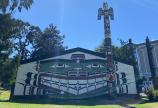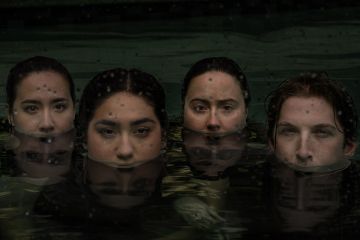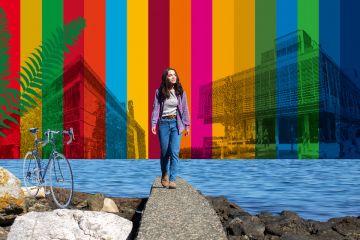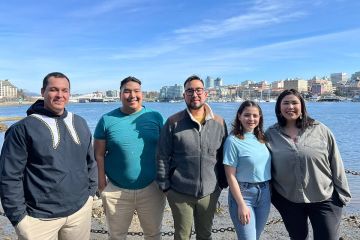Naming ceremony honours role in Indigenous mental health
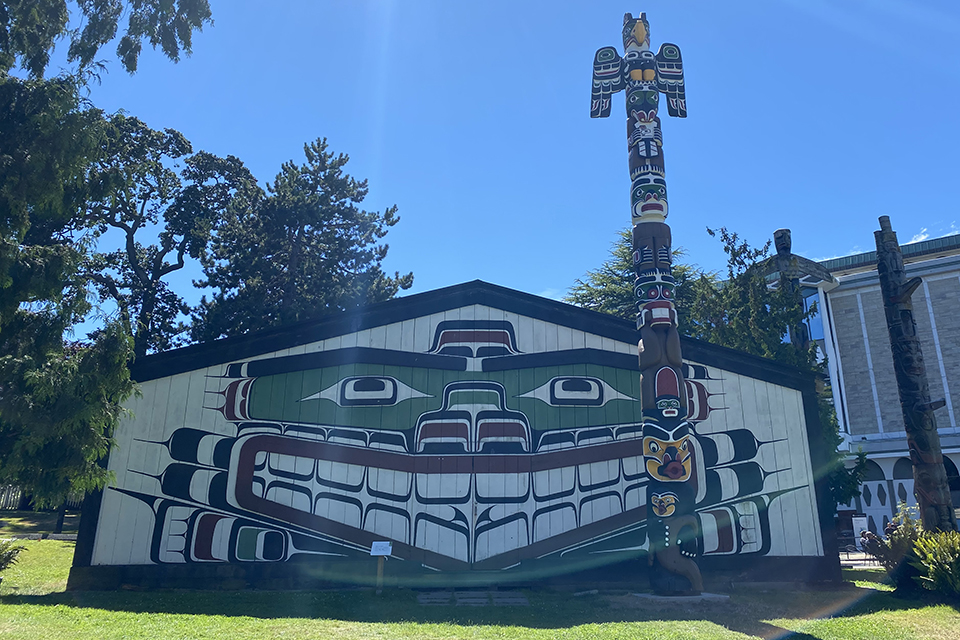
Traditional songs, dances and speeches are part of an Indigenous naming ceremony held today at Wawadiťła, also known as Mungo Martin House—the ceremonial big house built seven decades ago by the late Chief Mungo Martin—at Thunderbird Park on the traditional territory of the lək̓ʷəŋən peoples and of the Songhees and Esquimalt Nations. The University of Victoria is grateful to the family of Chief Mungo Martin, the world-renowned Kwakwaka’wakw artist and revered figure in Pacific Northwest Coast and contemporary Indigenous art, for the honour of the title of UVic’s new research chair in Indigenous mental health.
Chief Mungo Martin was a leader in Indigenous art and culture. We are deeply thankful to his family for their generosity in permitting the university to use the name of their respected relative to honour the new role at UVic, with now this enduring connection to the creative arts which play such an integral role in shifting cultural perceptions of mental health.
—Lois Harder, UVic’s Dean of the Faculty of Social Sciences
The research chair is funded by the $1.5-million gift from UVic political science alumnus Bruce McKean, first announced in December 2021.
The inaugural position of the Chief Mungo Martin Research Chair in Indigenous Mental Health is held by Indigenous scholar Emily A.P. Haigh, a psychologist and citizen of the Métis Nation of Ontario. Born in Toronto, Haigh was most recently the director of clinical training in the psychology department at the University of Maine, and officially joined UVic’s Department of Psychology this summer; she returned to Canada with her husband last month.
The Chief Mungo Martin Research Chair in Indigenous Mental Health is a commitment to decolonizing psychological approaches in a culturally safe environment.
—Emily Haigh, psychologist and UVic’s new research chair in Indigenous mental health
With her background in Indigenous methodologies and expertise in treating depression among other areas of scholarly interest, Haigh’s role at UVic will focus on strengthening research, teaching and community engagement in Indigenous health and well-being.
Our people have been living in a cycle of trauma for generations but we are learning to build resilience within ourselves. Sharing the name of our relative with the university is part of reconciling with the past.
—Chief David Mungo Knox, Hereditary Chief from Kwakiutl First Nation and great-grandson of the late Chief Mungo Martin
The role also supports UVic’s commitment to the United Nations Sustainable Development Goals (UN SDGs), in particular UN SDG Goal 3 which focuses on good health and well-being. Read about SDGs and UVic
-- 30 --
Photos
Videos
Media contacts
Emily Haigh (Dept. of Psychology) at emilyhaigh@uvic.ca
Anne MacLaurin (Social Sciences Communications) at 250-217-4259 or sosccomm@uvic.ca
Tara Sharpe (University Communications + Marketing) at 250-721-6248 or tksharpe@uvic.ca
In this story
Keywords: arts, Indigenous, administrative, faculty, staff, Indigenous, philanthropy, psychology, health, mental health, research
People: Emily Haigh, Chief David Mungo Knox, Lois Harder, Robina Thomas

